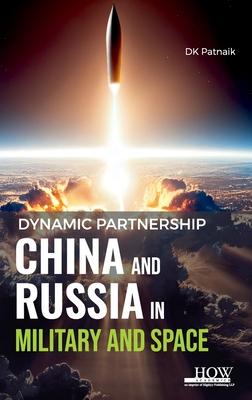Over the past two decades, the relationship between the People's Republic of China (PRC) and Russia has transitioned from what some described as a relationship of convenience to what both countries now call a "comprehensive strategic partnership." The growing strategic partnership between China and Russia is reflected in a burgeoning China-Russia space and military relationship. Once the dominant power in the space relationship, Russia now appears to be taking a secondary role. China's growing expertise in space, matched with the financial capabilities to sustain a large and growing space enterprise, signals not only China's rise as a major space power but also the geopolitical transition taking place between China, Russia, and the United States. Any limitations of the China-Russia relationship do not appear to be significant enough to derail the broader relationship. Indeed, not only do Beijing and Moscow seem to have successfully compartmentalized such irritants, but bilateral cooperation in sensitive dual-use areas of scientific and technological research suggests that they may be gradually overcoming-or are working to overcome-their mutual mistrust. As we embark on this journey through the intertwined realms of military strategy and space exploration, we invite readers to explore the depths of this dynamic partnership and the future of international relations.

Dynamic Partnership: China and Russia in Military and Space
Over the past two decades, the relationship between the People's Republic of China (PRC) and Russia has transitioned from what some described as a relationship of convenience to what both countries now call a "comprehensive strategic partnership." The growing strategic partnership between China and Russia is reflected in a burgeoning China-Russia space and military relationship. Once the dominant power in the space relationship, Russia now appears to be taking a secondary role. China's growing expertise in space, matched with the financial capabilities to sustain a large and growing space enterprise, signals not only China's rise as a major space power but also the geopolitical transition taking place between China, Russia, and the United States. Any limitations of the China-Russia relationship do not appear to be significant enough to derail the broader relationship. Indeed, not only do Beijing and Moscow seem to have successfully compartmentalized such irritants, but bilateral cooperation in sensitive dual-use areas of scientific and technological research suggests that they may be gradually overcoming-or are working to overcome-their mutual mistrust. As we embark on this journey through the intertwined realms of military strategy and space exploration, we invite readers to explore the depths of this dynamic partnership and the future of international relations.